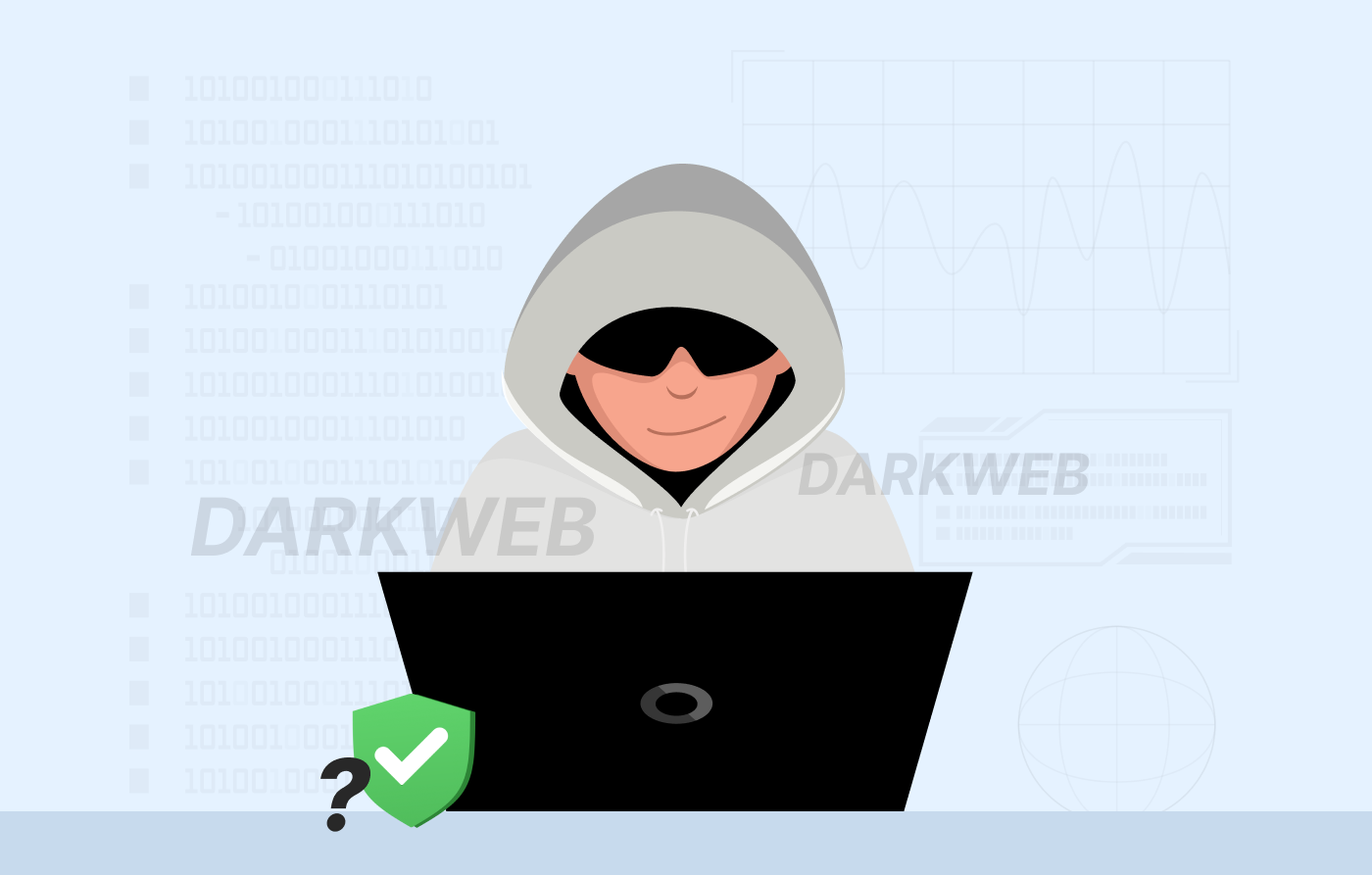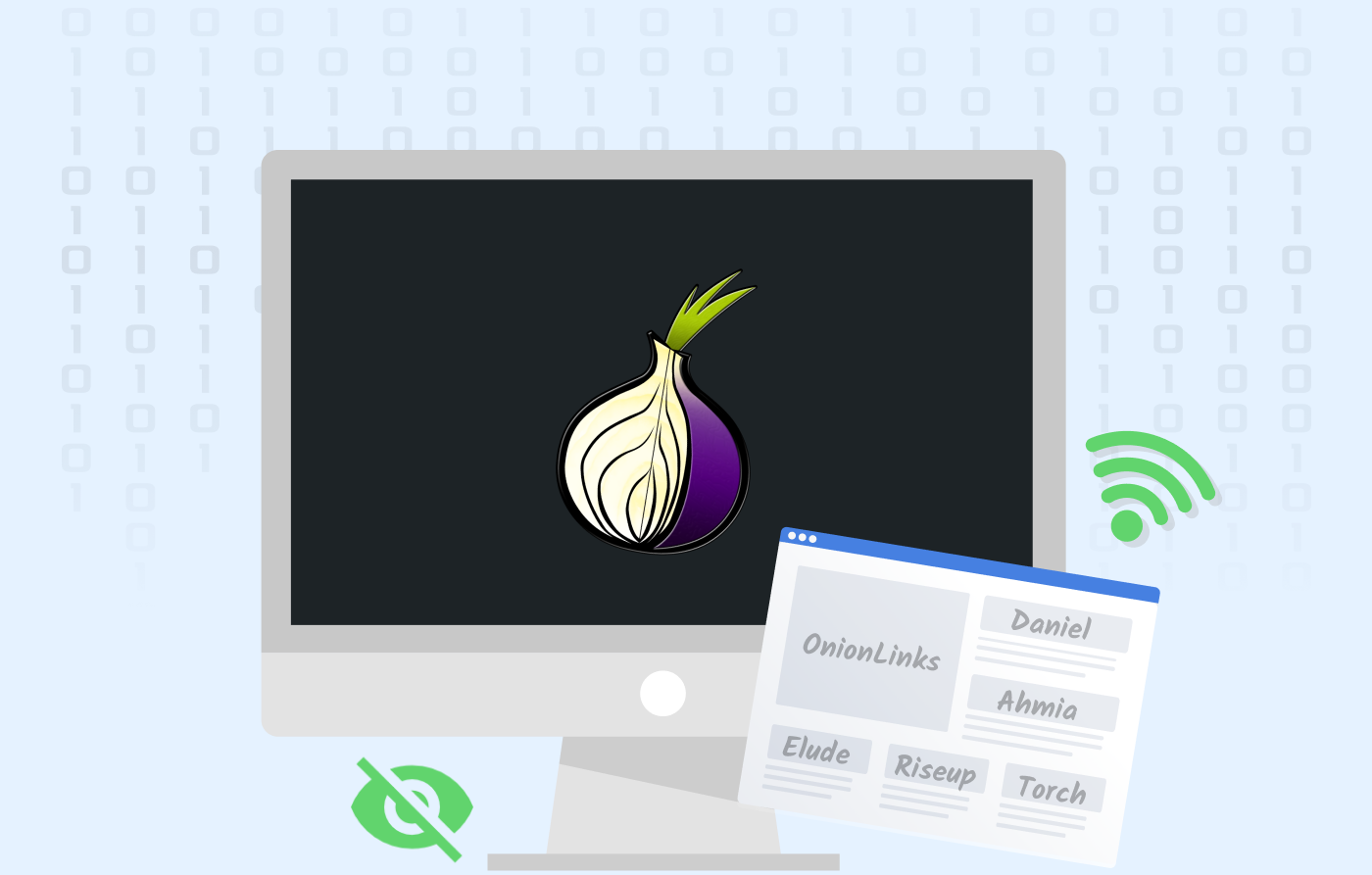-
Private search engines use the metasearch or proxy search model and the proprietary crawlers model.
-
Anonymous search engines offer more protection than regular browsers. They do not analyze online behavior, store user data, or sell it to third parties.
-
Most private search engines are free to use. They generate revenue through affiliate links, donations, and contextual advertisements.
-
Use a robust VPN like NordVPN with a private search engine for additional protection as you browse.

If you value online privacy, you’ll look for ways to have an anonymous and secure internet experience, especially when using search engines. While some search engine tools may give you the information you want, they may invade your privacy or even restrict your access to data.
Private search engines are reliable tools that give you access to information while keeping you anonymous and safe online. Let’s explore the best private search engines in 2026 so you know what to look for when choosing one.
Best private search engines to use – Quick list
- DuckDuckGo: For anonymous and private browsing without tracking.
- Qwant: European privacy-focused search results.
- Surfshark Search: Best for organically searching for results and with zero ads.
- Swisscows: Known to Switzerland as the best for family-friendly searches.
- Startpage: Uses Google search results but maintains privacy.
- Brave Search: Does not track user data and performs independent searches.
- Searx: Best for gathering information from multiple web pages.
- Mojeek: Best for private independent searches.
- MetaGer: Carries out anonymous meta-search from multiple sources.
- Disconnect Search: Best for private searches with the help of major search engines.
- Ecosia: Known for eco-friendly searches that ultimately support tree planting.
- Wolfram Alpha: Best for computational analysis.
- Search Encrypt: For encrypted searches.
- Gibiru: Covers uncensored and anonymous searches.
- Lukol: Best for proxy-based privacy searches.
- Peekier: Gives visual previews of search results.
- Oscobo: Performs anonymous searches without any data storage.
- YaCy: Best for decentralized and P2P operations.
- Gigablast: For open-source and large-scale data.
- Infinity Search: Best for customizable and factual search results.
Private search engine: What is it?
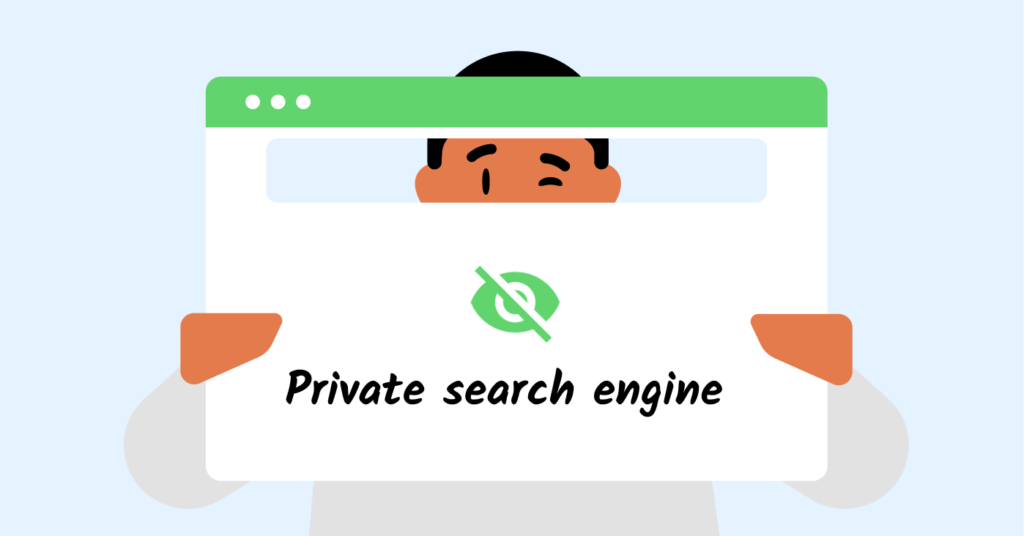
A private search engine is an online tool or program for intending users to safely browse the Internet. One of its essential features is the ability to ensure that every user’s search is anonymous, secure, and without trace or logging on the Internet.
Examples of user information that could get out without the use of private search engines are:
- Search history
- IP address
- Location details
- Unique codes, often from accepting online cookies
- Browser fingerprint
Multiple search engines exist for you to choose from, but while they are available, they reserve the right to your online activity when you use them. So, take your time before you select one. Their protection level is dependent on their revenue.
Types of private search engines

Private search engines operate using two models: meta or proxy search engines and proprietary crawlers. Meta or proxy search engines often gather results from searching through multiple sites. They also generate revenue through sponsored ads.
On the other hand, proprietary crawlers thoroughly search the Internet to create independent results or indexes. This encourages more authentic and decentralized results. Because of their thorough process, the results may be smaller compared to meta-search results.
What to consider in a private search engine?
To ensure that you make the right choice, there are some features or factors to look out for when considering private search engines. These include:
- User-friendly interfaces
- Zero tracking capabilities
- Customizable experiences
- Guaranteed privacy with no sign of tracking personal data
- Accurate and precise search results
A quick comparison of the top private search engines
| Private Search Engine | Features | Pricing |
|---|---|---|
| DuckDuckGo | Provides instant answers to search queries. Protects user data | Free |
| Qwant | Prioritizes privacy and neutrality. Categories search results in the form of web, social media, news, and more | Free |
| Surfshark Search | Works with the Surfshark VPN for an additional layer of protection. Ensures that there is no tracking of user data | Paid |
| Swisscows | Provides an in-depth review of every search query without tracking user data | Free |
| Startpage | Acts as a proxy between users and top search engines like Google. It allows anonymous browsing | Free |
| Brave Search | Open-source and provides independent searches. It is transparent, too | Free |
| SearX | An open-source metasearch engine that allows customization | Free |
| Mojeek | Independently indexes the web while protecting user privacy | Free |
| MetaGer | Uses Metasearch to gather results from various sources while prioritizing user privacy | Free |
| Disconnect Search | Routes search terms through servers to get rid of any personal data traces | Free but has a paid service that allows you to pay what you can |
| Ecosia | Promotes the planting of trees with ad revenue | Free |
| Wolfram Alpha | Deals with more computational tasks. Provides answers to factual queries by commuting necessary data | Free for personal use but has a Pro version |
| Search Encrypt | Encrypts search terms first before producing results | Free |
| Gibiru | Bypasses mainstream search engines to give uncensored results | Free |
| Lukol | Allows users to privately search terms and keeps them encrypted until the results are out | Free |
| Peekier | Provides a visual display of search terms for easier navigation | Free |
| Oscobo | Upholds user privacy by not tracking or storing any data | Free |
| YaCy | Operates a decentralized search engine backed up by a P2P network | Free |
| Gigablast | Offers a customizable experience and filters search results | Free |
| Infinity Search | Allows anonymous search with zero data storage. Also offers advanced search | Free for basic features and paid for premium features. Pricing is $5 monthly and $50 yearly |
20 Best Private Search Engines – Our detailed list
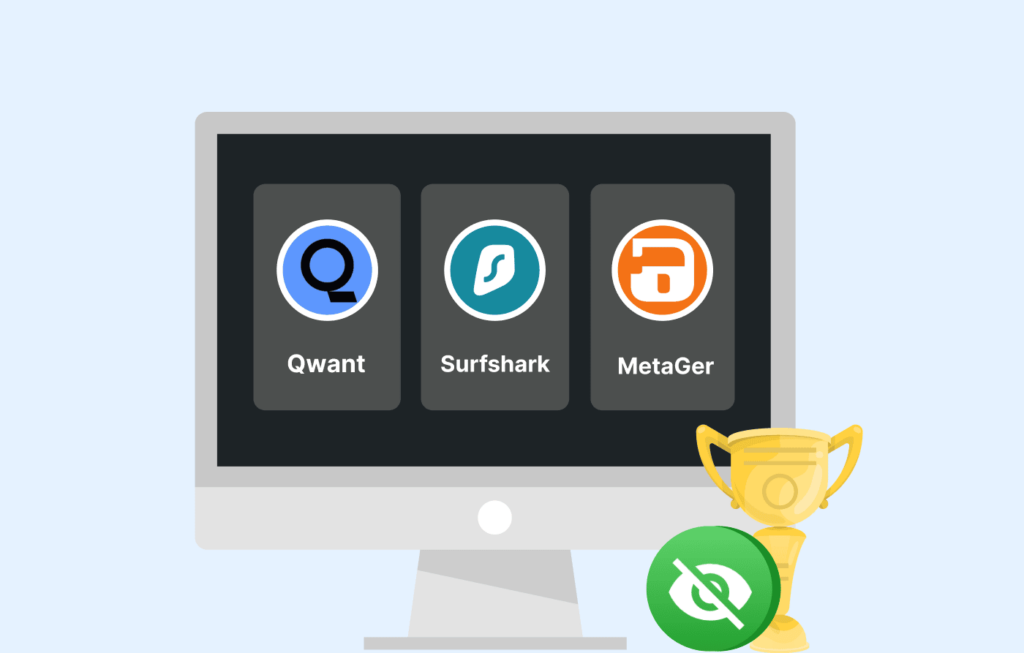
1. DuckDuckGo
DuckDuckGo is a private search engine that is operational in any location. In 2020, it served as a secure and private search engine for over 80 million people worldwide. This figure, especially at a time like that, shows its rank. The search engine is accessible to anyone using a desktop, browser extension or app, and mobile phone.
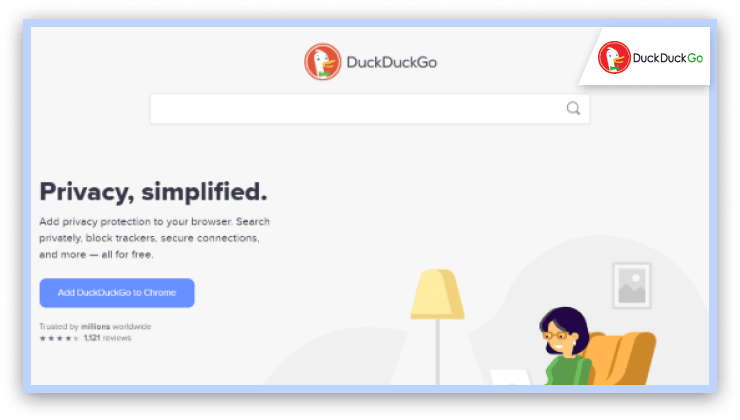
DuckDuckGo is anonymous, so you can browse knowing that nothing can be traced to you. It prevents trackers from busting your connection and allows you to bypass Google’s filter bubble. It offers a useful tool, “bangs!” that allows you to access third-party search results.
Contextual ad pop-ups might occasionally appear as DuckDuckGo is funded by these third parties. However, DuckDuckGo works well to carry out online searches with zero trace. As an additional feature, it is free.
Pros
- No personalized or target ads
- Your personal data is secure
- Does not build a user profile
- Has SSL encryption and blocks trackers
- It categorizes results
Cons
- Does not allow the integration of services like Gmail and Google Maps
- There are no personalizations
2. Qwant
Qwant is a French-based search engine that prioritizes user privacy and non-tracking. Since its launch in 2013, this search engine has offered top features that ultimately protect its users, such as Qwant Maps, Qwant Junior for children, and an easily customizable search experience.
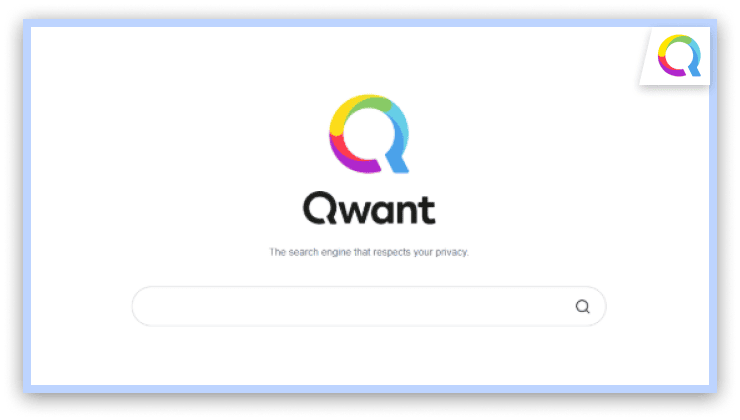
It does not track user’s searches or personal data as it has General Data Protection Regulation. Qwant provides search results in multiple categories. The integration of artificial intelligence makes the browsing experience easier and faster for every user.
How much does it cost to browse using Qwant? Nothing. It is completely free for all users. You can download the Chrome extension or simply visit the Qwant website and start browsing.
Pros
- Does not log user data
- Search history disappears once you close the app
- Does not track the user’s IP address
- Has different languages, filters, and display modes
Cons
- There might be trace of the contextual ad placements
3. Surfshark Search
Surfshark Search is a recently founded private search engine by the cybersecurity company Surfshark. Known for its excellence in virtual private networks, the company now offers complete ad and tracking-free experiences for every user.
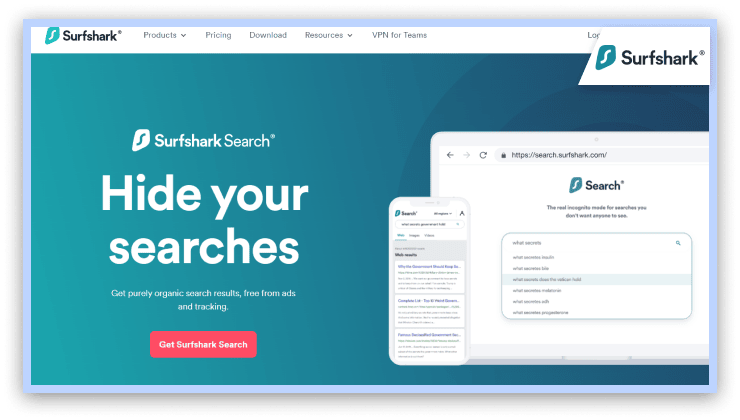
Unlike the search engines you’re used to, Surfshark Search comes with a VPN that provides military-grade encryption. Your search is secure as long as you use Surfshark Search, and if there is any suspicious activity, you get a breach alert. There is also an antivirus system, and it is not funded by third parties, so it is completely ad-free. However, it is not free. A subscription costs $4.29 monthly.
Pros
- There are no ads
- A cybersecurity company runs it
- Has a VPN integration
- Has a user-friendly interface
Cons
- It is not free
- Limited search features
4. Swisscows
Swisscows is a private search engine that is majorly for residents in Switzerland. It is anonymous and uses artificial intelligence to prevent the leakage of user data. As a matter of fact, Swisscows was built to never record user data through any means. Therefore, whatever you search using the search engine, you’ll never find it as a search history.
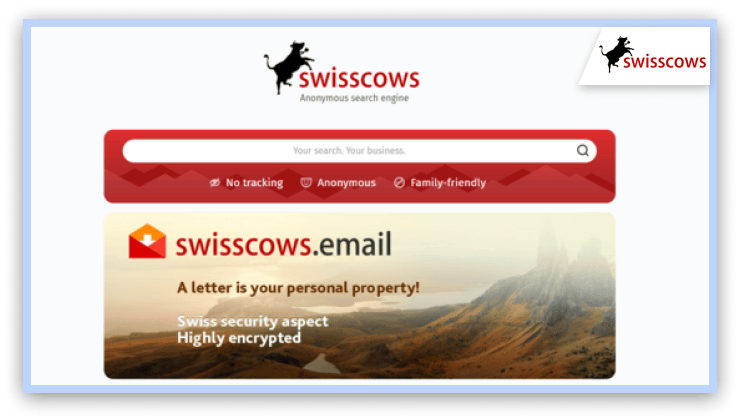
It is also important to mention that Swisscows works best for family-friendly searches. It can filter inappropriate content regardless of the search term. Parents can use this private search engine to regulate their children’s online consumption.
Additionally, you can integrate Swisscows as an extension on Chrome or FireFox on your device. However, for revenue generation, Swisscows display contextual ads. It is free but also offers a monthly subscription if you use a VPN.
Pros
- It is compatible with Android, iOS, and SaaS
- It does not store personal data or search history
- There is no cache storage
- Integrates artificial intelligence
- Works best for family-friendly searches
- Does not build user profiles
Cons
- Limited search results
5. Startpage
As a privacy-oriented search engine, Startpage collects results for your search from Google without tracking or storing any details. It also specializes in preventing third-party entries. While maintaining Google’s standard, Startpage provides users with comprehensive and top-quality search results.
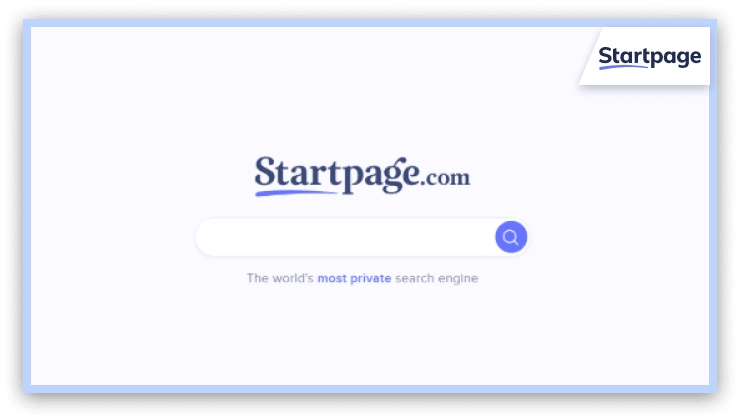
Startpage uses advanced encryption, ensuring that every online query is not logged and that your data passes through the safest tunnel. Its anonymous feature allows users to regulate how they want to appear online. You can use the Startpage as a Google Chrome extension. It is free for all to use.
Pros
- Zero data logging
- Contextual ad placement
- You can visit multiple sites anonymously
Cons
- The Google helpful info boxes are absent
6. Brave Search
Developed by Brave Software, also the makers of the Brave browser, Brave Search is a search engine that focuses on user’s personal information. Brave Search doesn’t store the information. This ensures you are completely protected against any possible violations of your privacy.
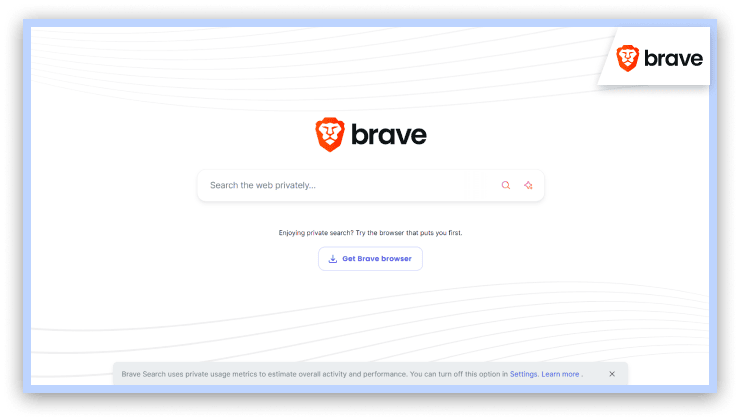
Unlike other popular search engines like Google or Yahoo, it works independently since it has its own index. It can find corresponding pages, making detailed search procedures more accurate without using third-party data.
Brave Search tracks user performance and uses the information for personalized advertisements. It does not automatically block ads. But, it provides users the opportunity to intentionally click on ads to get Brave Rewards, a program that grants users commission for accepting ads.
Pros
- Blocks ads
- It is free
- Blocks digital fingerprint
- Integrates the security protocol, Tor
Cons
- Limited extension support
7. SearX
The private search engine SearX is free and promotes confidentiality for its users. This engine draws information from many searchable sources without leaving any footprint.
To maintain the anonymity of the users, the search queries come from various places all over the Internet. Yet they are displayed on one site, which makes it impossible for any particular site to have a record of any user.
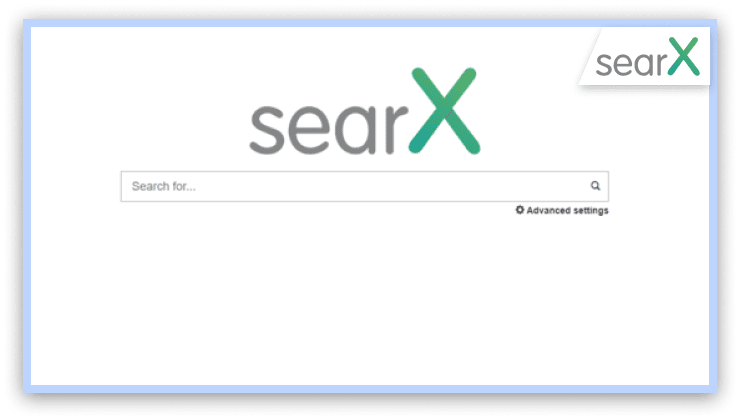
This is why SearX remains so secretive about everything; anyone can host it since it is decentralized. Aside from privacy, SearX has a lot to offer regarding customization options that let you fine-tune your search experience.
With no advertisements appearing, it guarantees free distraction searches. Some ads can be annoying. It makes them ineffective for someone concerned about privacy.
Pros
- It is open source
- There are no ads
- The search engine is customizable for optimization
Cons
- Setting it up requires technical knowledge
8. Mojeek
Mojeek is an independent private search engine that prioritizes user privacy. It does not track user data or personalize search results. Unlike many other private search engines, Mojeek has its crawler and index, which it uses to generate exceptional results whenever a user searches for something.
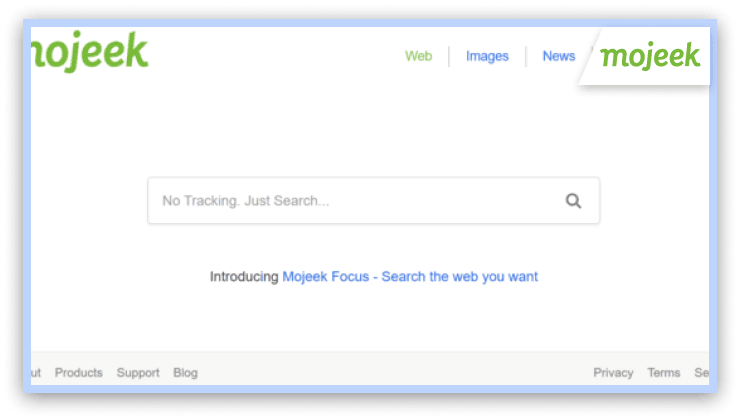
Mojeek protects users’ data by ensuring no data is collected, stored, or sold. This private search engine does not track data or sell data to third parties. It has a customizable search preference, and it is free! For easy access, Mojeek has a mobile app for smartphones.
Pros
- Does not track, record, or sell user data
- Offers an ad-free experience
- Bypasses filter bubbles
Cons
- Fluctuating or inconsistent speeds
9. MetaGer
MetaGer is a Germany-based privacy-centric metasearch engine. It combines results from multiple site pages or search engines to provide users with comprehensive results. It is a transparent and privacy-focused private search engine. The system is powered by hydro and solar power.
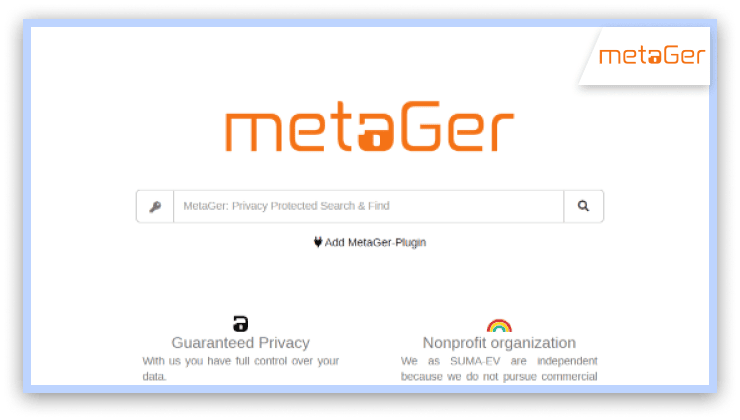
Inaddition, MetaGer provides source code accessible to anyone who can root it. The user-friendly interface is an additional factor to consider, as it makes browsing more fun. There are little or no ads, and it is easily customizable to suit user experience. Furthermore, the search engine website is free, but you can purchase a key and token to enjoy browsing ad-free.
Pros
- IP address is anonymous
- It is ad-free
- Zero user tracking or data logging
- It has an accessible source code
Cons
- The interface is not user friendly
- Most of its services are in German
10. Disconnect Search
Developed by an ex-NSA engineer and three Google employees, Disconnected Search offers browsing security to millions of users. It actively blocks malicious advertisements or any third party breach.
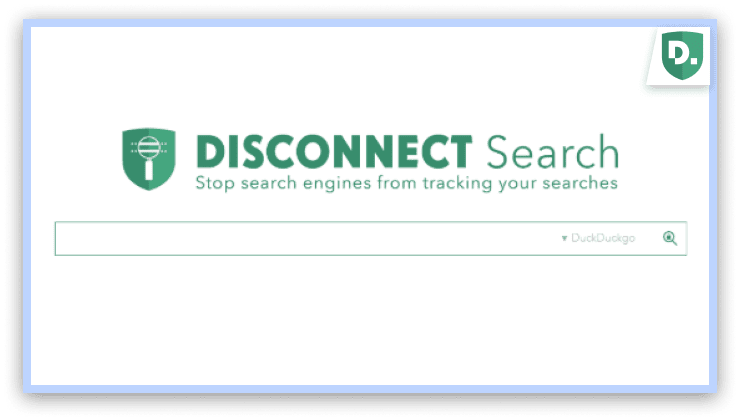
Disconnected Search does not track your location, record fingerprints, store cookies, and log search history. Instead, it provides browser extensions, uses encryption, dismisses ads, and blocks surveillance devices.
You can either access these features for free or via premium subscription. However, to enjoy all its benefits, you can consider the premium subscription.
Pros
- It is easy to use
- Can open search results in private mode
- Blocks websites from storing data or even suggesting search terms
Cons
- It is only compatible with Google, Yahoo, Bling, DuckDuckGo, and Blekko
11. Ecosia
Ecosia is also a private search engine, but with an initiative asides securing user data. It is known as one of the environmentally friendly private search engines. Ecosia runs as a social company using about 80% of its revenue to support the ecosystem by planting trees.

The company generates its revenue from click-based advertising. There are ad placements on the website but as a user, you first have to click on it for the company to get profit. Ecosia does not store or sell any form of user data. But, it tracks analytics to be able to provide clickable ads. You can use Ecosia for free.
Pros
- Does not track nor store user data
- It is transparent about where ad revenue goes
Cons
- Incessant ads
12. Wolfram Alpha
Wolfram Alpha answers fact-based questions through computation, not by showing content from other websites. This search engine site was created by Wolfram Research and uses the Wolfram knowledge base with massive data sets in subjects like Mathematics, Science, Engineering, and Finance.
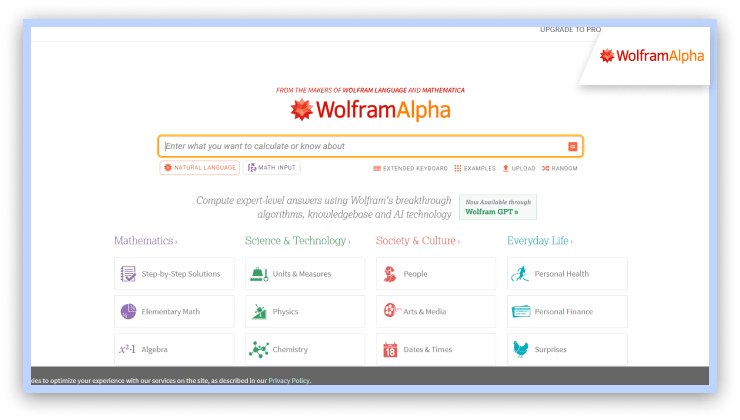
In addition, it cannot only compute but also has interactive abilities, such as animated depictions and careful guidance on solving mathematical problems.
Basic access to Wolfram Alpha is typically free. However, a paid version includes advanced features and functionality with the Alpha Pro subscription. It is more useful to users in the technical or academic field.
Pros
- Can carry complex queries
- Provides data-rich results
- Provides in-depth measures to ensure users understand search results
Cons
- It focuses on factual information only
13. Search Encrypt
Search Encrypt is a private search engine that specializes in privacy. It keeps users’ records confidential by using strong encryption techniques in their searches. It employs local encryption, AES-256, to secure queries before they are sent over the internet, and uses HTTPS to transfer the data securely.
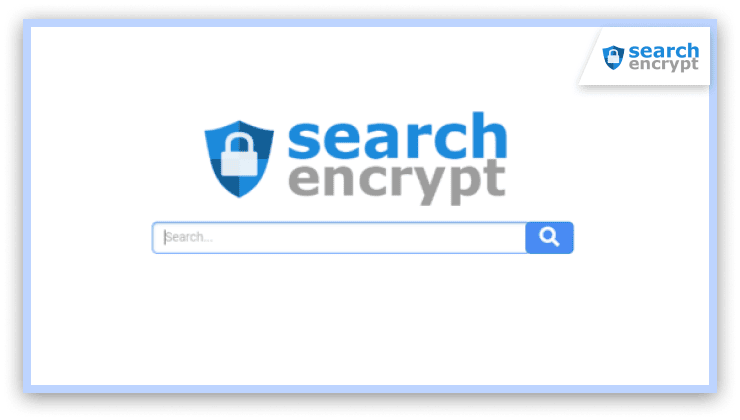
Combining these two encryption systems ensures that information about the searches remains private and cannot be accessed by outsiders. Additionally, it automatically erases all records after a specified time, ensuring that no trace is left behind on one’s system after visiting various sites.
Another special feature of search encryption is that it purges the contents of all search results stored in the user’s local device after a specific period, ensuring a higher level of protection.
Pros
- Uses the AES-256-bit encryption
- Zero logging of user data
- Automatic deletion of search queries
- Has a user-friendly interface
Cons
- It depends on third parties for search results
14. Gibiru
Typically, for every search you perform on different search engines, there is a filter bubble. What the filter bubble does is limit you from getting in depth data on your search. It is not the same with Gibiru. Gibiru is a private search engine with the goal to provide everyone with uncensored access to the internet.
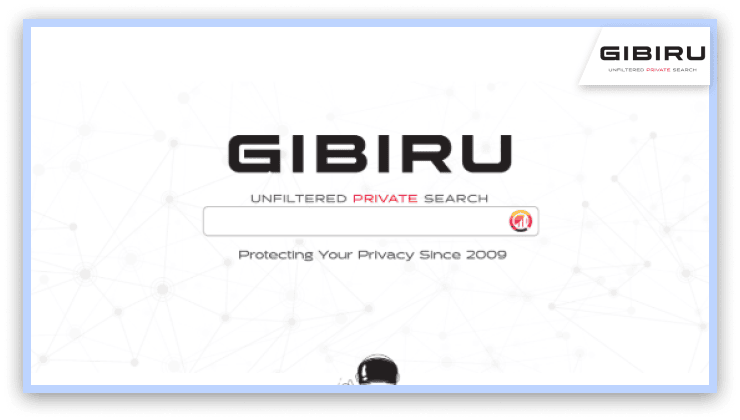
While it does this, Gibiru does not track, record, or store user data. It simply can bypass the bias and limitations popular search engines have. Gibiru offers fast paced search results and an optional anonymity feature. It is free for all users, has browser extensions, and has an app that uses a VPN.
Pros
- Keeps user data and activities confidential
- Provides an anonymous browsing feature
- Has decent speeds
- Offers a more broad response to queries
Cons
- Does not have a user-friendly interface
- Search results are typically limited
15. Lukol
Lukol is an anonymous search engine, powered by Google Search aimed at helping users browse the internet safely. It serves as a proxy between users and other search engines. It protects user data by not collecting or storing user information.

Unlike the others, Lukol collects user data in the form of cookies and sells it to third parties to display ads. It also analyzes cooking information and interprets user online behavior to third parties. It is free and has a Firefox extension.
Pros
- It acts as proxy between users and popular search engines
- It filters inappropriate results
- It has a friendly user interface
- Users can operate anonymously
Cons
- Lacks advanced features like integrated maps
- Relies on other search engines for results
16. Peekier
Peekier is a private search engine with a goal to improve the user’s browsing experience. It temporarily stores user data to perform analysis and improve overall functionality.
Peekier may not track your personal details, but there is the possibility that it saves your location or preferences. You must note, however, that the service it uses, such as the HTML5, can use cookies to protect you from cyberattacks.
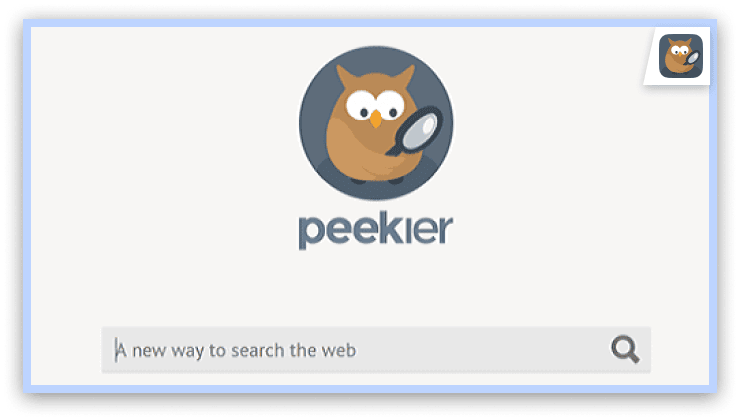
The SSL/TLS encryption is used in Peekier to determine any leakages. Overall, it uses encryption to protect your privacy. One way Peekier distinguishes itself from other private search engines is, it shows visual previews of search results. Users can have a preview of anything before wanting to search deeply.
Pros
- It provides visual previews everytime you visit a website
- It is ad-free
- Has excellent speed
Cons
- Depends on external sources for information
17. Oscobo
As a UK based private search engine, Oscobo allows users to operate anonymously. It does not save user information and does not require any personal details for signing in. Through this means, Oscobo protects you from selling your data to third parties.
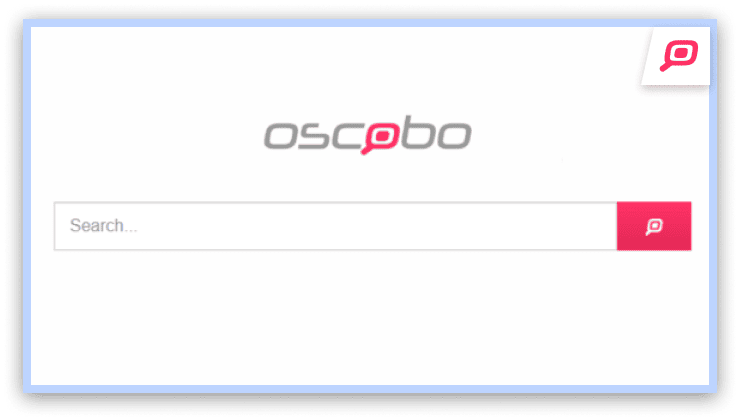
With the SSL encryption, Oscobo protects user connection and acts as a bridge between the browser and servers. Because there are no third party analytics or meta information, user data is secure.
Pros
- It has a downloadable browser
- It is free
- It uses SSL encryption
- No targeted ads
Cons
- Limited search results
18. YaCy
YaCy is a decentralized private search engine that operates using the P2P network, which allows users to contribute and benefit from online interactions. It is open source, so it prioritizes security, privacy, and independence. To support that, the platform provides individual nodes rather than all users utilizing a centralized network.

With this system, every user is independent and does not have to rely on centralized data. To use YaCy, you need to download and install the app on your device. By doing so, you become a member of this search engine crawler network and indexing web pages.
Pros
- Results can be censored
- No advertisements
- It is decentralized
Cons
- There may be malicious attacks
19. Gigablast
Gigablast is an open source private search that prioritizes privacy, security, and independence by employing its own web crawler and index. It provides a unique alternative to mainstream search engines by generating its own results rather than relying on third party sites like Google.
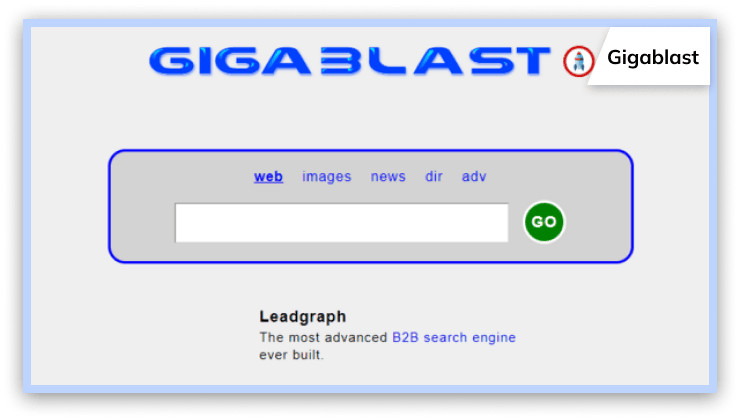
Gigablast is popular because it does not follow any user’s records or store them hence searching cannot be exposed. The search engine is able to quickly investigate large quantities of information ensuring rapid searching performance.
As an open source project, it permits programmers to make changes to its program enabling them to work together on their projects. Gigablast is free, does not track IP addresses, save user agents, or sell to third parties.
Pros
- Supports independent indexing
- Has great speeds
- It is open source
- Easy to use
Cons
- Has small index
20. Infinity Search
Infinity Search is a private search engine that combines its web indexes with popular sites like Google to provide answers to users. The search engine is designed to not save any form of user data.
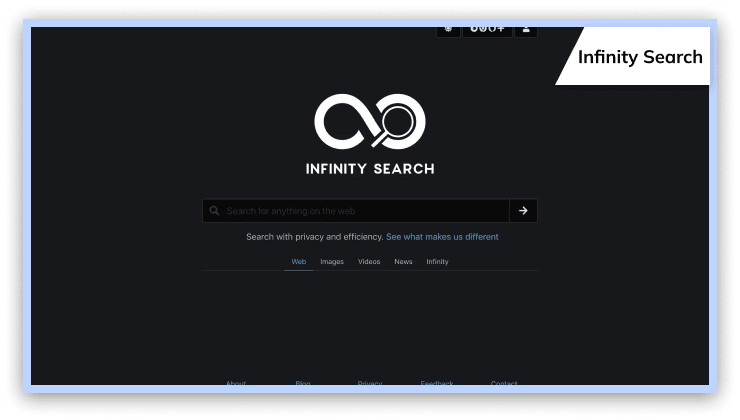
It is not a free search engine. To access all its features, which include a customizable interface, zero ads, and advanced search results, you need to pay $5 monthly or the prices of whatever item or service you are at $50 yearly.
Pros
- Allows users to customize their interface
- No data tracking
- It is open source
- Provides information from multiple sources
Cons
- The speed might suffer
- It is a paid service
How we selected the best anonymous search engines

We were able to determine the top secure search engine websites through adequate research and testing. We looked out for tools that would guarantee optimal privacy while factoring key features like:
- Privacy policy: We analyzed each tool’s privacy policy to ensure that they do not collect or store users’ online data.
- Reliability: We evaluated the reliability of the organizations backing each private search engine.
- Search relevance: Our choice was determined by the accuracy of these search engines’ search results.
- User-friendliness: We tested each tool to be sure that they were easy to navigate and use.
- Cookie usage: We checked each tool’s cookie policy and how it impacts users.
Why should you use a secure search engine?

If there are options to keep user data private, everyone wants to hop on it, and private search engines help with that. But why should you use it? Typically, browsers store user data and can use that data to track your location, analyze your online behavior, and sell that data to third parties.
Private search engines protect your online privacy by preventing tracking your browsing behavior for targeted advertising. You visit a search engine, input keywords, and get results without compromising your data. Who wouldn’t want that?
How to keep your searches private?

If you need to be double-sure about your searches on a private search engine, then use any of the options below.
Use a private and secure browser
You could be using great search engines but still have your information out there because of selecting the wrong browser. It could share your location, browsing history, address, usernames, passwords, and Metadata.
To be safe, you can use the browser extension that search engines like DuckDuckGo offer. Most private search engines are compatible with Chrome and Firefox and work as browser extensions.
Use a private search engine
Private search engines are called private for a reason. They help keep you and your search secure. We selected 20 of the best private search engines and dissected them in this guide. So, you can use any of them and trust that your data is safe and private.
Use a good ad blocker
It may look like just a harmless ad, but there is nothing harmless about ad placements. These days, advertisements quietly collect user data and sell it to third parties. To avoid this, we suggest you utilize a good ad blocker.
Use a good VPN service
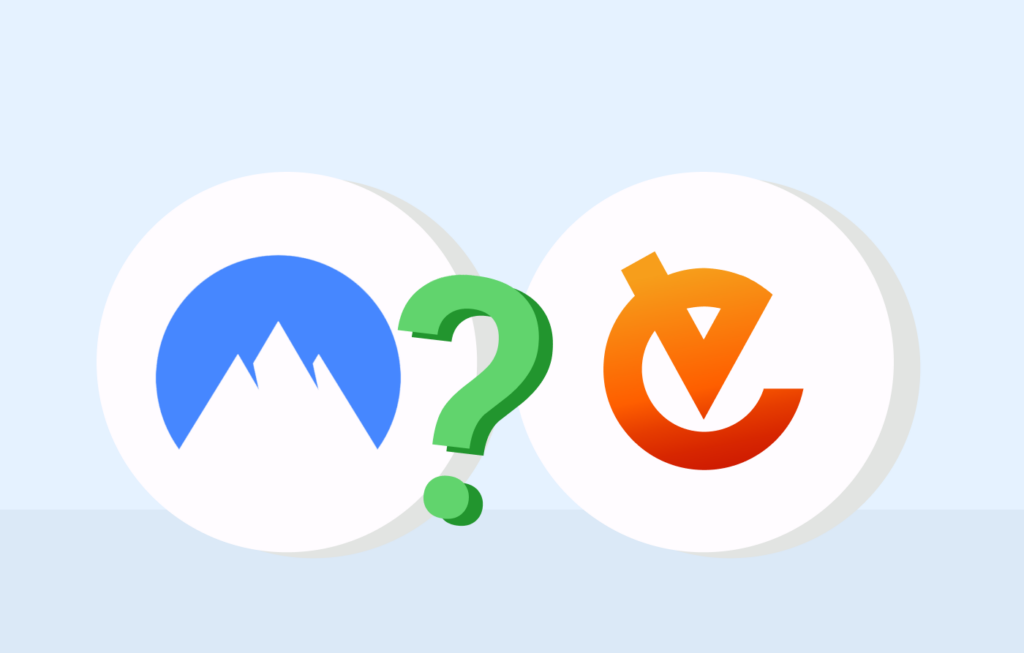
VPNs are top protective measures for protecting your data. With a VPN, you can trust that your data is encrypted and passes through the safest route. This way, it cannot get into the hands of malicious hackers. So, if you must use a VPN, below are our top recommendations:
- NordVPN: It is the most popular VPN service in the market. NordVPN helps to protect your privacy through encryption, bypassing geo-blocks and has a zero logging policy.
- ExtremeVPN: It is relatively new but offers premium service to its users. For example, it has dedicated P2P servers that allows you to share files on the internet without the use of centralized networks.
- Surfshark: Developing one of the best secure search engines on our list is enough reason to consider using Surfshark. It has a no-logs policy, which means that your searches are not recorded and, as such, cannot get out.
Log out
If you are logged in to your accounts in Gmail, Amazon, or YouTube, consider logging out first before making private searches. Leaving your account logged in can put them at risk.
What is the difference between a search engine and a browser?
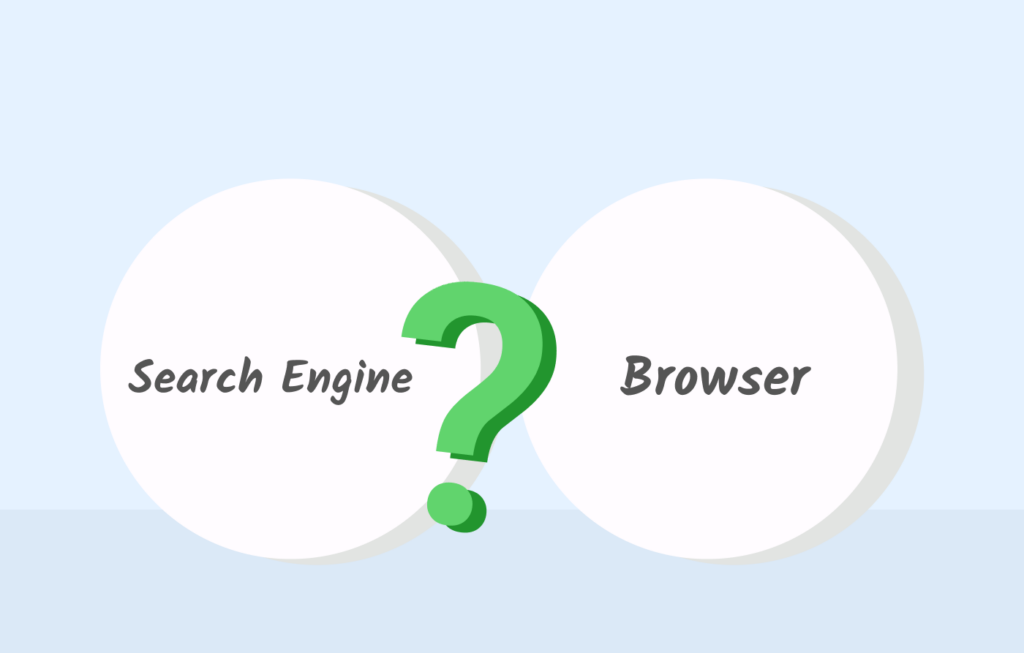
A browser and search engine sound like they function the exact same way. But that’s not the case since there are significant differences between a search engine and a browser. A search engine is software that helps users find information on the internet by researching websites and providing relevant results.
On the other hand, a browser is also a software but it functions as a means to allow users to access and navigate web pages. To distinctly separate a search engine from a browser, note that examples of a search engine is Ecosia and an example of a browser is Google or Chrome.
How do private search engines make money?
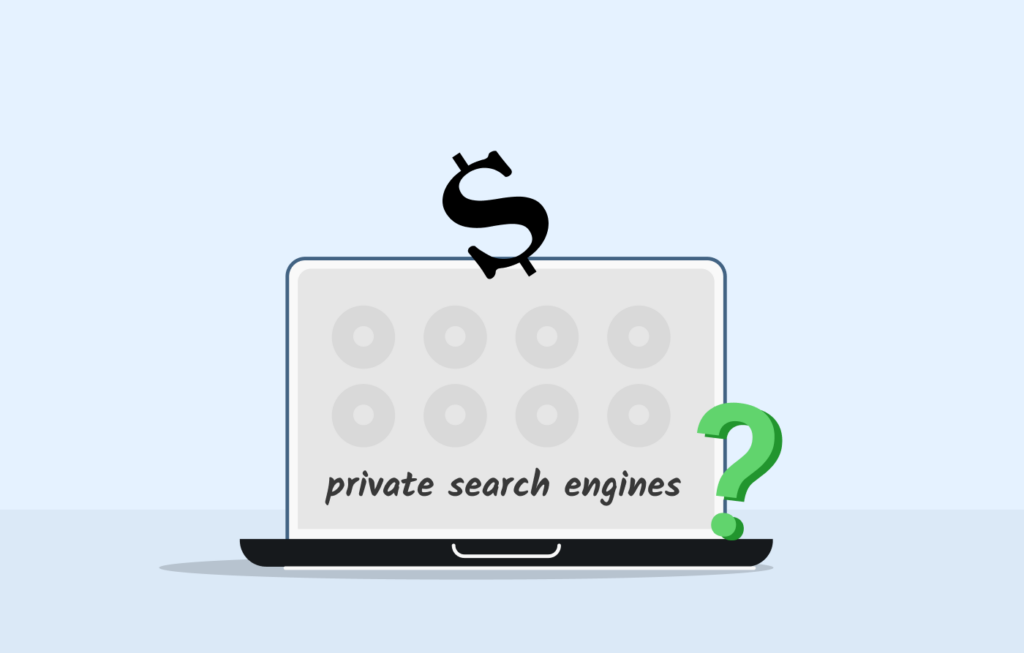
Have you ever wondered how these private search engines work despite most of them being free and refusing to sell user data to third parties? Well, here’s how.
Affiliate revenue
Private search engines like DuckDuckGo utilize affiliate programs to make money for the smooth running of the search engine. They are typically part of affiliate programs and offer deals using keywords like “shopping” or anything else that can get users to click on it.
Once a user clicks on it, likes what they see, then proceeds to make payment, these search engines make a profit. Note that the prices at the point of sale are not inflated. They are the exact price. So, you have nothing to worry about.
Contextual advertisements
When you visit a search engine like, Surfshark Search, and you search for anything, there may be ad popups relating to what you just searched. This is known as contextual advertising. Clicking on any of the ads generated revenue for the search engine.
Donations
This can also be a means of generating revenue. Private search engines offer multiple features and functionality, and being free to all users can attract people to donate toward their initiative.
Search engines like Ecosia whose goal is to keep users’ data safe and also use their revenue to plant trees, accept donations. These donations can come from individuals, firms, or even nonprofit or for profit organizations.
Does incognito or private mode help?
Not really. Using incognito or private mode on your browser only keeps your browsing history hidden. With deep search, anyone can retrieve whatever data they want.
How do I search privately on Google?
There are measures you can take to help you privately search on Google. These include deleting your search history or disabling Google from viewing it. You can also browse online using a faceless account, which will make it hard for traces to come back to you.
For an additional layer of protection you can utilize the incognito mode or use premium VPNs like NordVPN, ExtremeVPN, and Surfshark.
Are private search engines actually private?
While it is nearly impossible to stay completely private on the internet, private search engines provide good coverage to their users. Various anonymous search engines on the market offer distinct levels of privacy protection.

Some operate with VPNs which are good for encrypting your data. You must read through their policy, features, and offers just to be sure you’re not selling your data in the process.
Is it legal to use private search engines?

Private search engines are legal because they provide better anonymity than regular search engines. This means that you can use these tools to get information while protecting your online privacy without worrying about any legal consequences.
However, you must note that while using private search engines is legal, it is unlawful to use them for criminal activities.
FAQs
Yes, there are. Infinity Search, Surfshark Search, Ecosia, Brave Search, Oscobo, and Gigablast are 7 out of our top 20 private search engines that do not track your online activities as you browse.
If you have the opportunity to ask all private search engines, they’ll state that theirs is the most private. However, is there a way to truly tell which is most private? Not exactly. But, you can consider their features and offers to determine which suits your preferences best.
One of the privacy concerns that millions of people face with regular search engines is the ability to record whatever they type on the search button. Or the inappropriate use of data willingly shared. It could even be building user profiles or selling user data to third parties.

